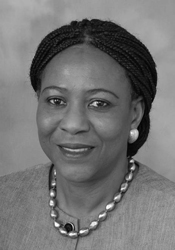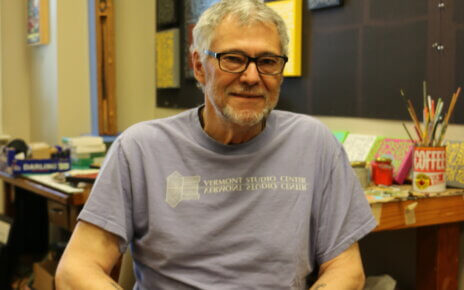Meet Dr. Mercy Azeke, Dean of the Center for Student Success
 The Center for Student Success (CSS) allows students to have access to the many programs and services that help students cope with the stresses of college. These include the academic rigors, determining and declaring an appropriate major, acquiring valuable leadership and work experiences, and making progress towards degree completion. The CSS houses all of the programs that help students accomplish these goals including the Office of First Year Advising, the Tutoring Center, Career Services, Experiential Education, Service Learning and Community Programs, the Department of Disability Services, the Writing Center, Supplemental Instruction, the Office of Transfer and Undeclared Services and the Educational Opportunity Fund (EOF). Dr. Mercy Azeke is the overseer for all of the programs encompassed by the CSS.
The Center for Student Success (CSS) allows students to have access to the many programs and services that help students cope with the stresses of college. These include the academic rigors, determining and declaring an appropriate major, acquiring valuable leadership and work experiences, and making progress towards degree completion. The CSS houses all of the programs that help students accomplish these goals including the Office of First Year Advising, the Tutoring Center, Career Services, Experiential Education, Service Learning and Community Programs, the Department of Disability Services, the Writing Center, Supplemental Instruction, the Office of Transfer and Undeclared Services and the Educational Opportunity Fund (EOF). Dr. Mercy Azeke is the overseer for all of the programs encompassed by the CSS.
Azeke became the Dean of the CSS in October 2009. She is originally from Nigeria where she received her bachelor’s degree from the University of Nigeria in home economics education. She came to the Statesin 1980 with her husband. After a few months in the U.S., she decided with the help of her parents to go to graduate school at Temple University, where she received her master’s in curriculum instruction and doctorate degree in vocational education.
Azeke has worked in both public and private two-year and four-year institutions. Prior to coming to the University, she worked at Virginia Tech as the Director of Academic Advising and Student Services for the Undergraduate Program in Pamplin College of Business. Before that, Dr. Azeke served for several years as Executive Director of the First Year Experience at Norfolk State University. She has also worked at Lewis University in Romeoville, Illinois, where she was the first Director of Academic and Personal Support Services. Her areas of expertise include student development, enrollment management, student retention, academic advising, and academic and career services. She has also taught education courses at the undergraduate and graduate levels.
Azeke truly enjoys working at the University because it is a “close knit, family-oriented community.” She has found that the administration is very caring and involved, and students are great and engaged. “My folks at CSS are the best,” said Azeke, “I feel truly blessed to be in this great institution and community.”
Azeke believes that the students are the greatest resources at the University. “The best part of my job is working with students,” said Azeke. “Without the students, the job is boring.” Azeke loves the field because it allows her to “bring needed support services to students”. She has been working with students for over 25 years.
“There was one point where I wanted to go into the medical field because I was strong in the sciences. It would have been nice to learn more about it and my parents would have been very happy, but I have no regrets about the field I am in currently.”
On average, 200 students come into the CSS every day. Since Azeke has been at the University, a few new programs, such as Supplemental Instruction, have been implemented,. Some areas in the CSS include activities such as academic skill workshops, career activities, writing-related workshops, service learning projects, and advising activities. CSS is taking their services to the students at various locations throughout the campus. The use of social media sites, websites and e-mails are main resources used to reach out to students.
Also, despite the poor economy, more and more University graduates and returning students are getting jobs, whether they be full-time, part-time, internships or service learning experiences. This is partly due to CSS’s programs and offices aimed to help the students. Additionally, she said that many more students are now opting to go to graduate school.
Azeke likes the direction that the CSS is headed, but she said that getting even more students to seek help from the programs would be ideal. “CSS is not only for students who are struggling. We also get graduate students and students who want to excel in their major.”
One day, Dr. Azeke would also like to replicate Monmouth’s CSS at the University of Nigeria.
PHOTO COURTESY of Mercy Azeke


